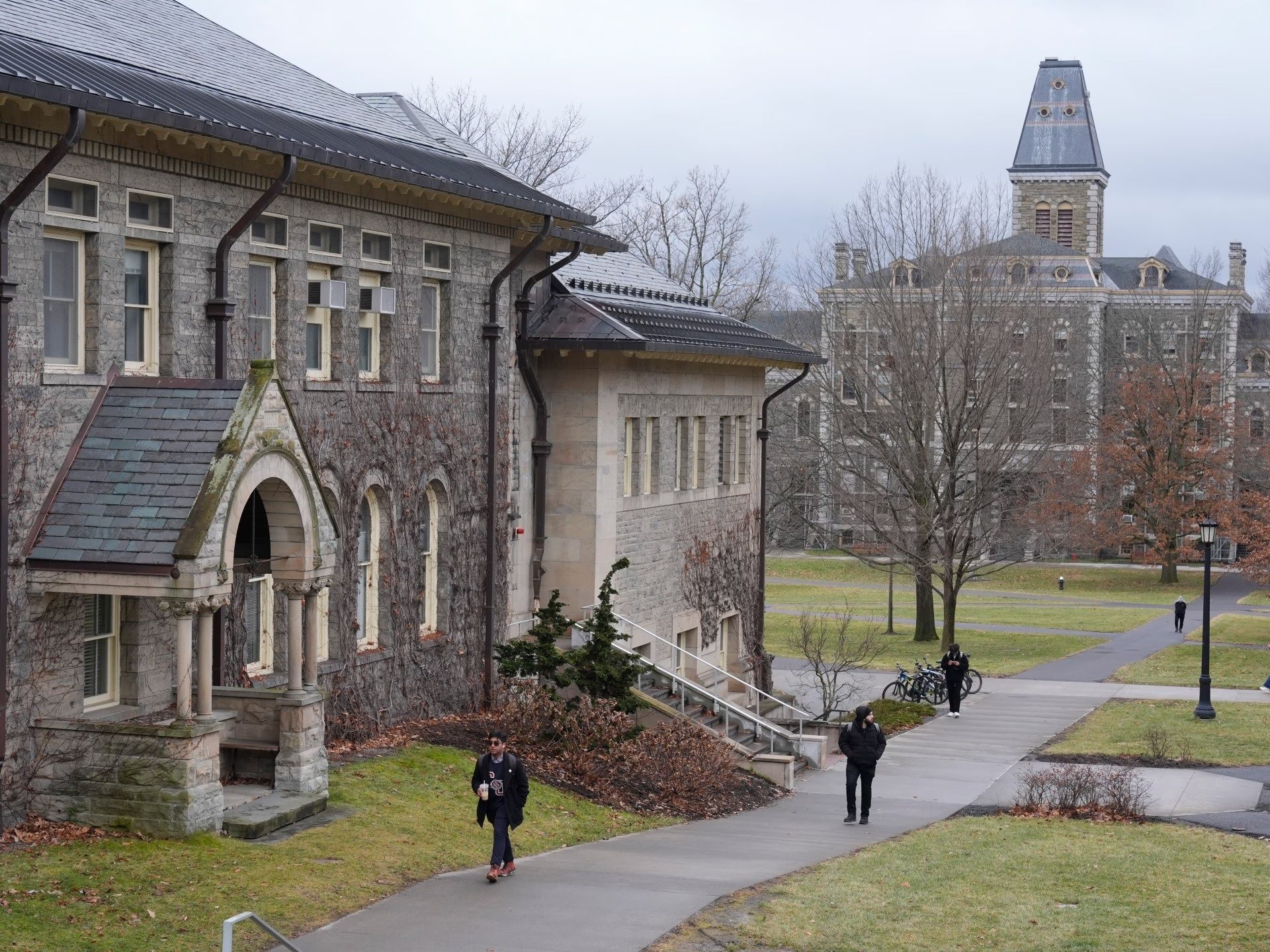When I arrived to study in the United States, the daunting prospect of deportation never crossed my mind. Being a British citizen, I assumed I was protected under the so-called “special relationship” between the US and the United Kingdom. Deportation was an issue faced by asylum seekers from countries like Mexico or Haiti, far removed from the serene snow-capped hills of Ithaca, New York, where I attend Cornell University. Or so I thought.
In January, during a class I was teaching on African American literature, I received a text message prompting me to nervously scan the street outside for signs of danger. ICE (Immigration and Customs Enforcement) agents were reportedly conducting raids in downtown Ithaca. I found myself at risk due to an executive order signed by President Donald Trump the day before, which suggested the possibility of deportation for foreign students involved in activism on Palestine.
This order mandated universities to monitor and report activities of international students and staff, specifically targeting incidents involving allegations of anti-Semitism. It portrayed the anti-war protests on US campuses as “pro-jihadist,” warning that those participating would face deportation in 2025. This chilling message has now come to fruition. On a Saturday night, ICE arrested Mahmoud Khalil, a Palestinian who led a protest at Columbia University, and sent him to a detention facility in Louisiana, far away from his pregnant wife.
Universities, by punishing students for peaceful activism against Israel’s war in Gaza, have paved the way for such actions and raids. They are faced with a choice: to either support Trump’s crackdown on dissent or stand against it, protecting their students and upholding their values of free speech. Cornell University, for instance, chose the former, singling out and suspending several Black, Muslim, Arab, and Jewish students, including myself, accusing us of anti-Semitism or violent behavior. For me, the suspension became akin to house arrest for a month, impacting access to university facilities for taking a stance against the genocide in Palestine.
I was luckier than some of the other students arrested or evicted from campus housing, or barred from participating in Shabbat or Muslim prayers. The suspensions were a blow to Cornell’s reputation, which prides itself on freedom of expression and a history of student activism. Despite this, during a lecture by Angela Davis, the university’s censorship policies were embarrassingly evident when questions about Palestine and campus censorship were forbidden.
Davis’s talk provided a morale boost to activists but did not alleviate the threat of deportation that hangs over us. Universities must assure they will not cooperate with immigration authorities to remove us. Punishing legitimate protest could lead to loss of grants and funds as seen with Columbia University, which had its federal grants revoked under accusations of not adequately addressing anti-Semitism and “illegal protests.”
This stance against dissent is reflective of a broader societal issue in the United States, where systemic racism, Islamophobia, and xenophobia persist, exemplified by the excessive law enforcement and the draconian immigration policies pushed by the Trump administration. As a non-citizen Black Muslim, these policies directly threaten my status, leaving my British passport’s protection uncertain without firm action from Cornell University.
Source: https://www.aljazeera.com/opinions/2025/3/12/trump-wants-to-deport-foreign-students-like-me-universities-must-defy-him?traffic_source=rss







